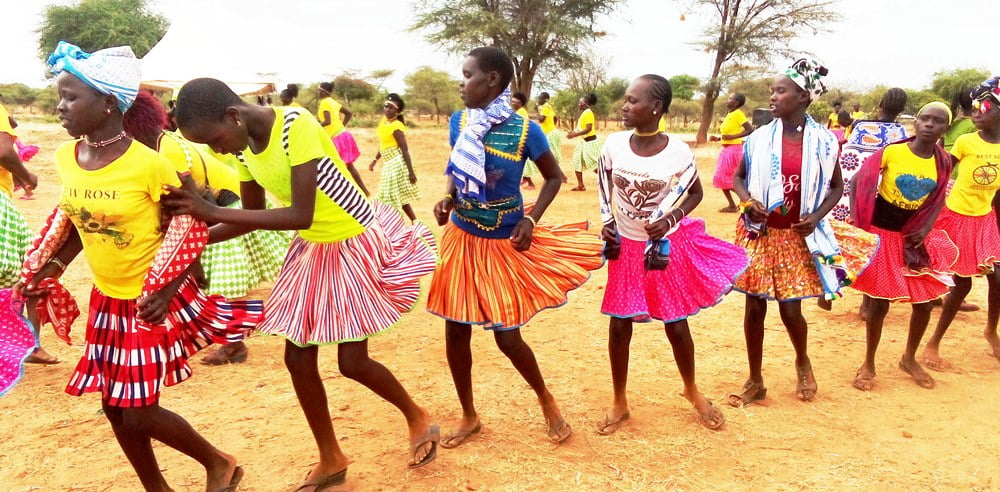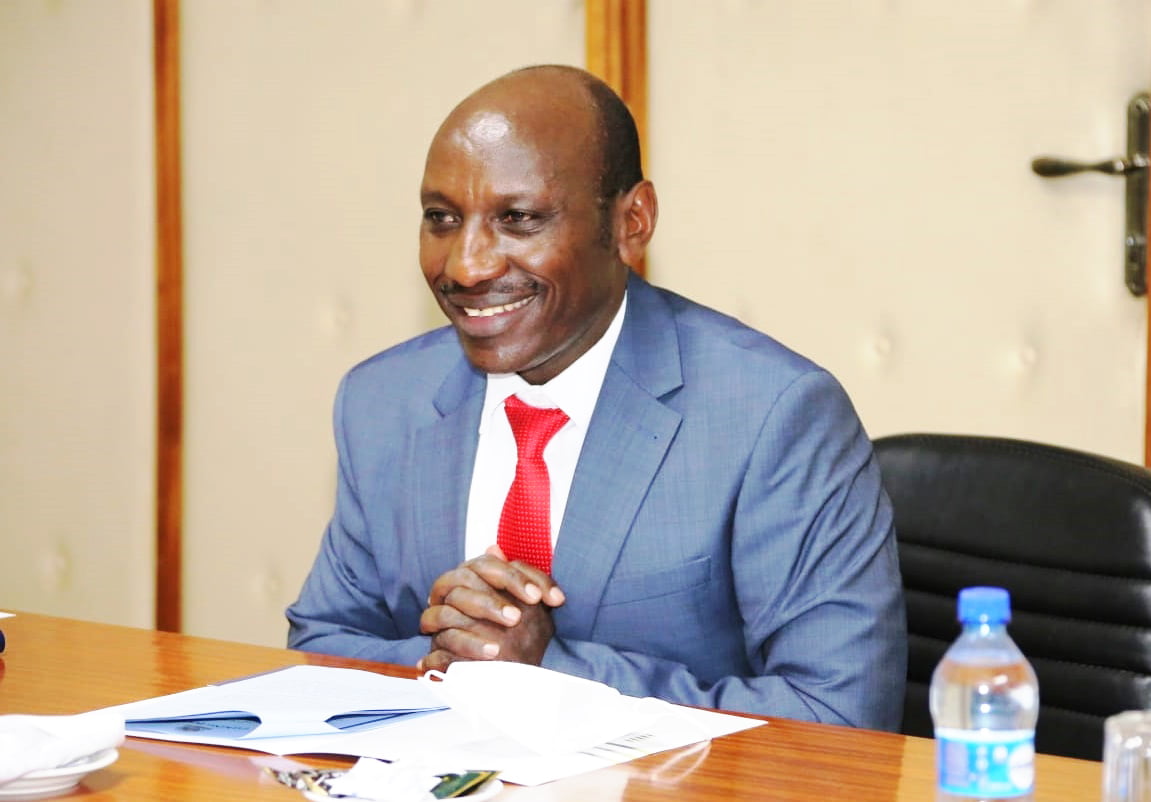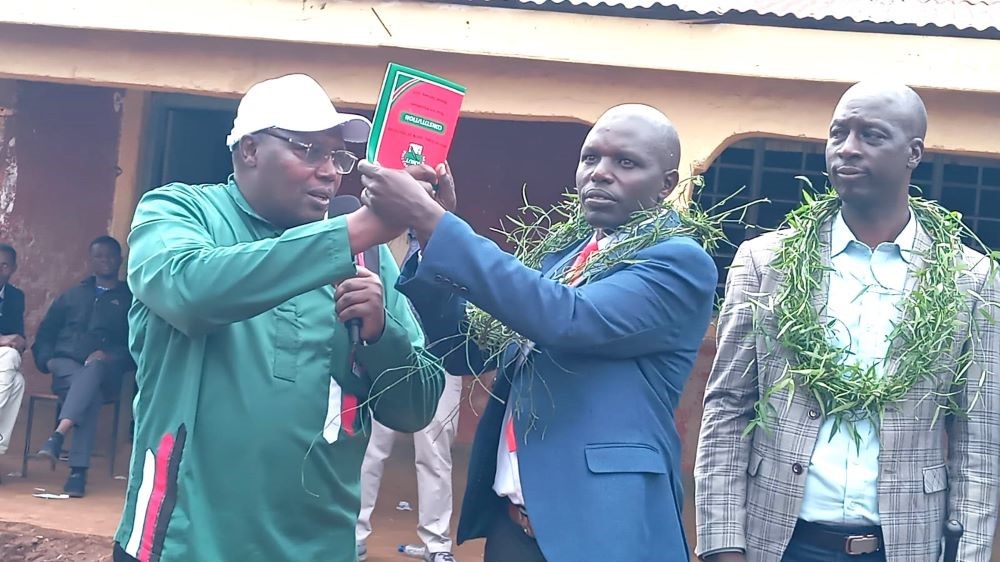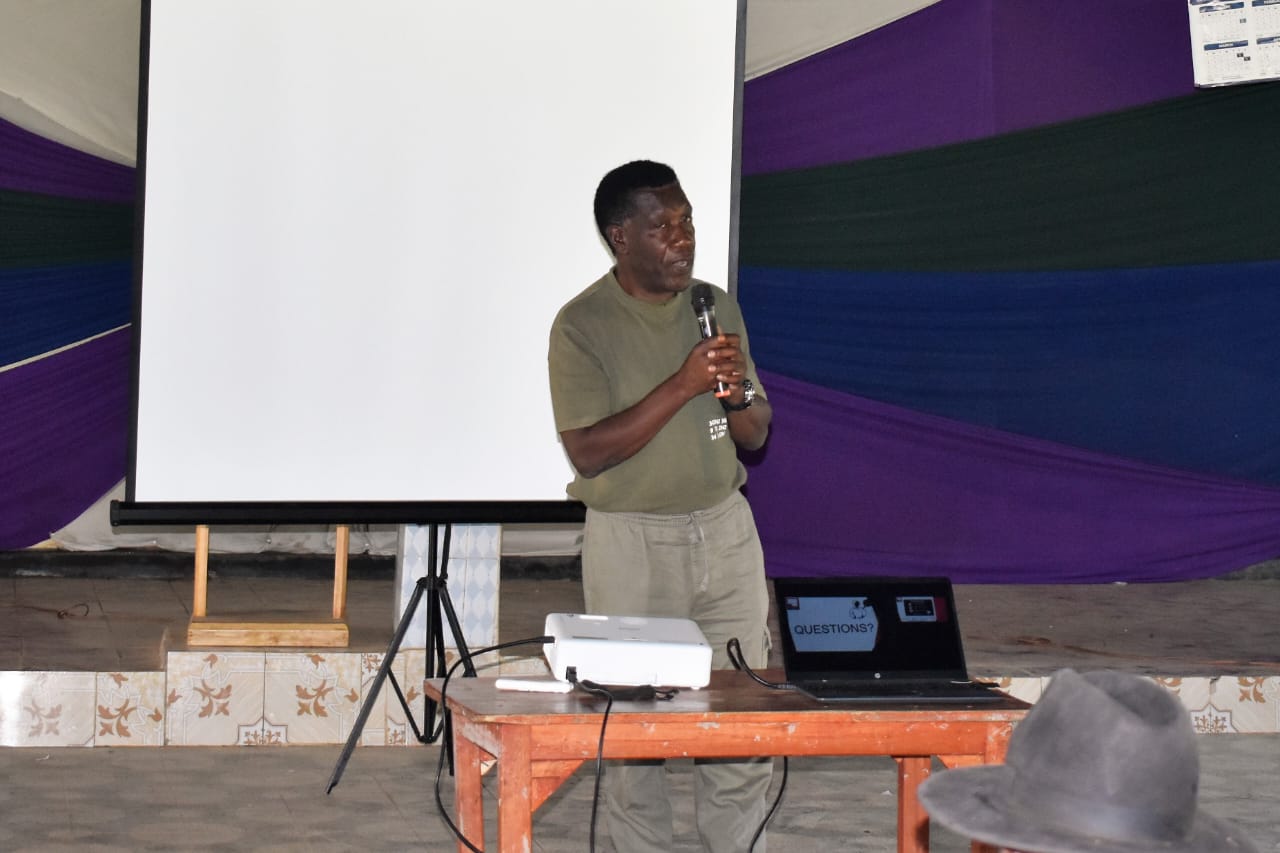By Kiplat Kaptuya
In the remote areas of West Pokot, young men and women in an open field are moving up and down as they dance to the rhythm of the local popular music dance kwara kwara.
The dance, also called lopeikirep, got its name from the act of young ladies clad in Pokot traditional pleated free flowing lorwas dancing with their skirts swinging in the air.
The dancers go round in circles and shake their behinds and expose their nakedness.
The dance is so popular in the remote areas of North Pokot sub county and areas in neighbouring Uganda like Amudat , Karita and Lokales.
The afro fusion music type is fused with traditional Kalenjin beats and South African instrumentals and has replaced the old Pokot Kidong’a dance.
The origin of the dance can be traced back to harambee ceremonies where people would dance as they waited for others to arrive. It has become so popular that it is danced by people of all generations in all ceremonies.
Popular kwara kwara musicians include Pokot Boy, Rwata boy, Digital and others.
Massacah, a Ugandan music producer based in Kapenguria, says that he has recorded more than 3,000 kwara kwara style songs since the year started.
“Every local musician wants kwara kwara music because that’s what his or her fans want. I am a modern music producer but I have been compelled by my customers to record the new type of music,” he said.
Alice Cheyech , a resident from Kodich village, says that five years ago, kwara kwara dance didn’t exist yet currently, even young boys and girls in universities have embraced it.
“The dance is so popular that no function can go on well without kwara kwara musicians singing and people dancing,” she added.
Abraham Angela, popularly known as Rasta Innocent and who us a Karamajong musician singing dancehall music, says that people from the Pokot community want speedy music.
“If you sing any other type of song, people will just stare at you. However, when they hear the beat of kwara kwara, they all go to the arena to dance,” he said.
Despite the fact that the dance is so popular in the region, not everyone is pleased with its existence.
The local administration at Kacheliba sub county banned the dance arguing that it has increased sexual immorality in the region.
Kacheliba sub county deputy county commissioner Kennedy Kiprop said the dances had led to an increase in the cases of early pregnancies and early marriages in the area.
“The popular kwara kwara dance has led to immorality among the youth. I’m banning it with immediate effect and asking all chiefs and their assistants to crack the whip and arrest those who will not adhere to the ban,” he said.
Speaking at Kodich area during a public meeting, Mr. Kiprop noted many girls had dropped out of school due to early pregnancies and early marriages.
“I urge locals not to allow the youth in the villages to hold this dance as it is really derailing the gains we had made in educating our children,” he said.
He added that the county had achieved 98 % transition to secondary schools and that it’s the government’s responsibility to ensure that the children complete their education.
The administrator expressed concern that some parents from the area take their children to the neighbouring Uganda to undergo the cut yet it’s against the law.
“We have intelligence that locals from Kodich and Orolwa are sending their female children to undergo the cut in Uganda. We are following possible leads and those found will be apprehended and face criminal justice.”Mr Kiprop warned.
Isaac Lomwai, Lopet location chief, said they had to ban the dance since most girls were being married off.
He explained that they also banned night harambees so that girls don’t participate in the dances.
“Through the ban, we aimed to reduce the cases of early pregnancies.” He said.
His sentiments were echoed by James Lomachar, a resident of Kacheliba, who says that the new dance has increased the sexual appetite of people and led to immorality.
“Most women dance to the music without putting on panties while men only cover themselves in bed sheets,” he explained.
Anti-Female Genital Mutilations [FGM] organizations have expressed concern that night parties and prayers are promoting the vice among the teenage girls in the area.
World Vision Girl Child Protection Officer Teresa Cheptoo, who is an anti- FGM champion in the county, said that night parties and ceremonies are some of the factors that contribute to high teenage pregnancies and FGM cases in the county.
“Some parents secretly organize parties at night in church and sing church songs so as not to raise alarm. Night crusades should be banned since many children and circumcisers hide in church. They fool the police and subject innocent girls to untold suffering,” she said.
She asked church officials not to organize overnight crusades and meetings adding that many parents who want to cut their girls have taken advantage of the crusades to organize the illegal parties where girls are cut.
Chelopoy Primary School head teacher Lonyangabok Andrew said ten girls from the school are at home because they are pregnant.
He explained that some of the pregnancies were a result of the kwara kwara dance.
“Say no to kwara kwara, loipekirep and free boda boda lifts. Don’t get used to free things because you will have to pay for it in another way”, he advised young girls.
Selina, known as mama culture, said that girls got engaged in the dance after their parents failed to guide them. She added that most girls learnt how to dance from their peers.
“The girls’ parents have failed to guide them. We talked to some of the girls who revealed that they haven’t been told that dancing style is seductive,” she said.
Research has shown that West Pokot county is among the counties with the highest rate of teenage pregnancies at 29%. The percentage has surpassed the national figure of 18%.
The county also has low uptake of family planning at 8.6% and this can be attributed to lack of educational and the retrogressive cultural practices.
Records from the Kenya District Health Information System, revealed by the Declares Kenya Community Based Organization, showed that at least 670 pregnancy cases have been reported among teenage girls by March, 2022.Three out of 10 teenage girls in the County have either had their first child or are pregnant with their first born.






